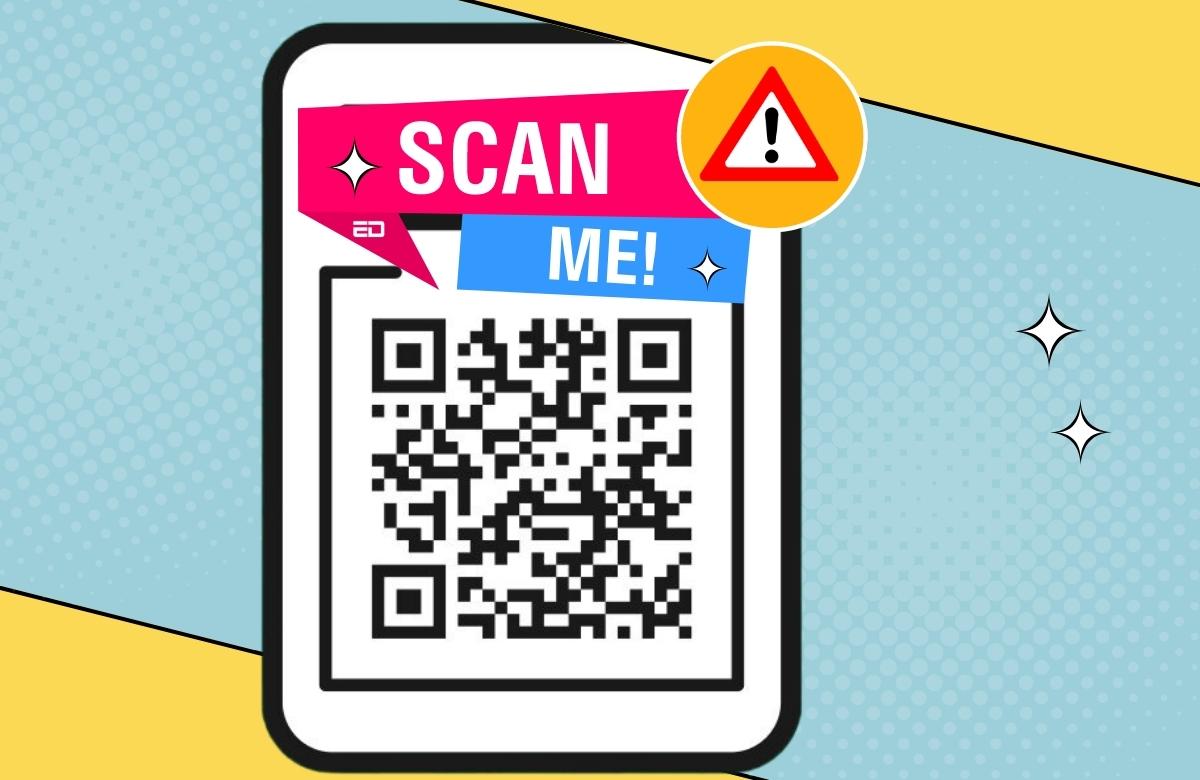In today’s fast-paced digital age, convenience and speed are key factors driving the adoption of digital payment methods like UPI (Unified Payments Interface) and QR (Quick Response) codes. These technologies have revolutionized the way we transfer money, making transactions quicker and simpler.
However, as with any technological advancement, there’s a flip side to consider. The rise of digital transactions has also led to an increase in online fraud, with scammers employing various tactics to deceive individuals and steal their hard-earned money. One such insidious scam is the QR code scam.
Understanding the QR Code Scam
The QR code scam involves fraudsters convincing victims that they are about to receive a payment through a QR code. In reality, QR codes are designed to facilitate payments, not to receive them. Here’s how the scam typically unfolds:
- Initial Contact: Scammers often target individuals selling items on online platforms like OLX. They express interest in purchasing the item at the listed price without bargaining or inspecting the item.
- Gaining Trust: The scammer requests the seller’s UPI ID and bank account details to initiate the payment, all the while creating an illusion of a genuine transaction.
- QR Code Delivery: The scammer then sends a QR code via a messaging app, such as WhatsApp, claiming that the code will allow the recipient to receive the payment. This QR code is usually accompanied by a specified payment amount.
- Urgency and Pressure: To prevent the victim from having time to think or investigate, the scammer bombards them with constant calls and messages, urging them to scan the QR code and enter the OTP (One-Time Password) quickly.
- Deception and Loss: When the victim scans the QR code and enters the OTP, the scammer gains unauthorized access to the victim’s bank account and initiates a transfer of funds, leaving the victim with a depleted account.
Read More: Kerala Man Scammed Of ₹40,000 By AI Based Deepfake WhatsApp Fraud: Know All About It
Preventing QR Code Scams
To protect yourself from falling victim to QR code scams or any form of online fraud, it’s important to follow these essential steps:
- Guard Personal Information: Never share your UPI ID, bank account details, or OTPs with individuals you don’t know or trust. Treat this information as highly confidential.
- Face-to-Face Transactions: Whenever possible, opt for face-to-face transactions when buying or selling items on online platforms. Cash transactions provide a level of security and eliminate the risk of falling for a digital scam.
- Understanding QR Code Usage: Remember that QR codes are primarily used for sending money, and not receiving it. Be cautious of any situation where you’re asked to scan a QR code to receive funds.
- Verification and Due Diligence: Always verify the identity of the person you’re dealing with on online platforms. Check their profile, ratings, and conduct additional research if necessary.
- QR Code Scrutiny: Before scanning any QR code, carefully inspect it for any irregularities. Avoid scanning QR codes that appear to be stickers placed over other QR codes.
- OTP Confidentiality: Under no circumstances should you share your OTP with anyone. Legitimate institutions will never ask for your OTP.
- Limited Personal Information: Be mindful of the personal information you share online. Minimize sharing your mobile number unless absolutely necessary.
In conclusion, while digital payment methods and QR codes have indeed simplified our lives, they’ve also opened the door to new forms of cyber fraud. Staying informed and adopting cautious practices when it comes to sharing sensitive information and conducting transactions online is essential.
By adhering to these preventive measures, you can significantly reduce your risk of falling victim to QR code scams and other online fraud schemes.
Image Credits: Google Images
Feature Image designed by Saudamini Seth
Sources: India Today, The Economic Times, ISEA
Find the blogger: Pragya Damani
This post is tagged under: QR code scams, Online fraud, Digital transactions, UPI, Cybersecurity, Digital payments, Online banking, Scam prevention, Fraud awareness, Online scams, Digital security, UPI payments, QR code security, Online safety, Financial fraud
Disclaimer: We do not hold any right, copyright over any of the images used, these have been taken from Google. In case of credits or removal, the owner may kindly mail us.
Other Recommendations:
WHAT ARE DARK PATTERNS & HOW’RE E-COMM GIANTS MANIPULATING YOU WITH THEM



































